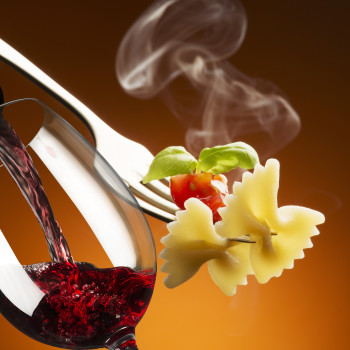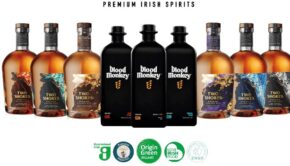Febvre pushes the boat out

Helen Coburn reports on UK wine and food expert, Fiona Beckett's secrets to achieve good wine matching
11 March 2015
Wine merchant Febvre has been working to raise the profile of its fine wine portfolio. In February, it ran a programme of tastings, dinners, master classes and food matching sessions, visiting locations on both sides of the border. Encouragingly, all the events were well attended; even early arrivals could hardly get a seat at a Louis Latour Burgundy master class.
Indeed, that same session was judged by many of the trade to be the highlight event. Among the whites, the Corton Charlemagne 2010, stood out for harmony and length, while the Chateau Corton Grancey Grand Cru 2010 was a big bodied red, which still held its balance, with tasty dark plum fruit and slightly old fashioned dryish finish. It is drinking well now and should continue to improve for the next couple of years.
UK wine and food expert, Fiona Beckett, packed out several food and wine matching sessions. The format was a small portion tasting menu, with each course accompanied by two wine alternatives. According to Beckett, six secrets underpin good wine matching. “Don’t just think of ingredients”, she says, “but the way a dish is prepared. Is it roast chicken or chicken curry? You’ll need a different wine for those.”
It’s vital, she says, to think about sauces. “You may think of red wine with pasta”, she says, “but a creamy sauce will be better with chardonnay. You also have to try to have your wine in harmony with side dishes – so think about what veg you’re serving. And then bread. If it’s a speciality or particular texture, you have to work with that as well.”
Becket advises cooks to remember the classic combinations such as Sauternes and blue cheese or muscadet and oysters. “For me”, she says, “the only classic combination that doesn’t work is the French one of Epoisse cheese with Burgundy. Locals love it but I think the strong cheese just slaughters the wine!” Ambience also matters. Soft candlelight on a winter’s night may call for red rather than white wine, while most of us will go for more expensive wine on special occasions. The one exception, Beckett concedes, is weddings. “Let’s face it, weddings are too expensive to be over fussy about matching”, she says, “but you should taste in advance what’s being offered to make sure it’s pleasant with the food”.
And finally, urges Fiona, don’t forget to taste as you cook. A wine which seemed like a perfect match when you thought of a dish, may not seem quite so good when you put the final flavours together. “Taste as you go, both the food and the wine, making sure they’ll go as well as you thought”, she advises. The palate, it seems, is just as effective at matching as any grand principles.



 Print
Print






Fans 0
Followers